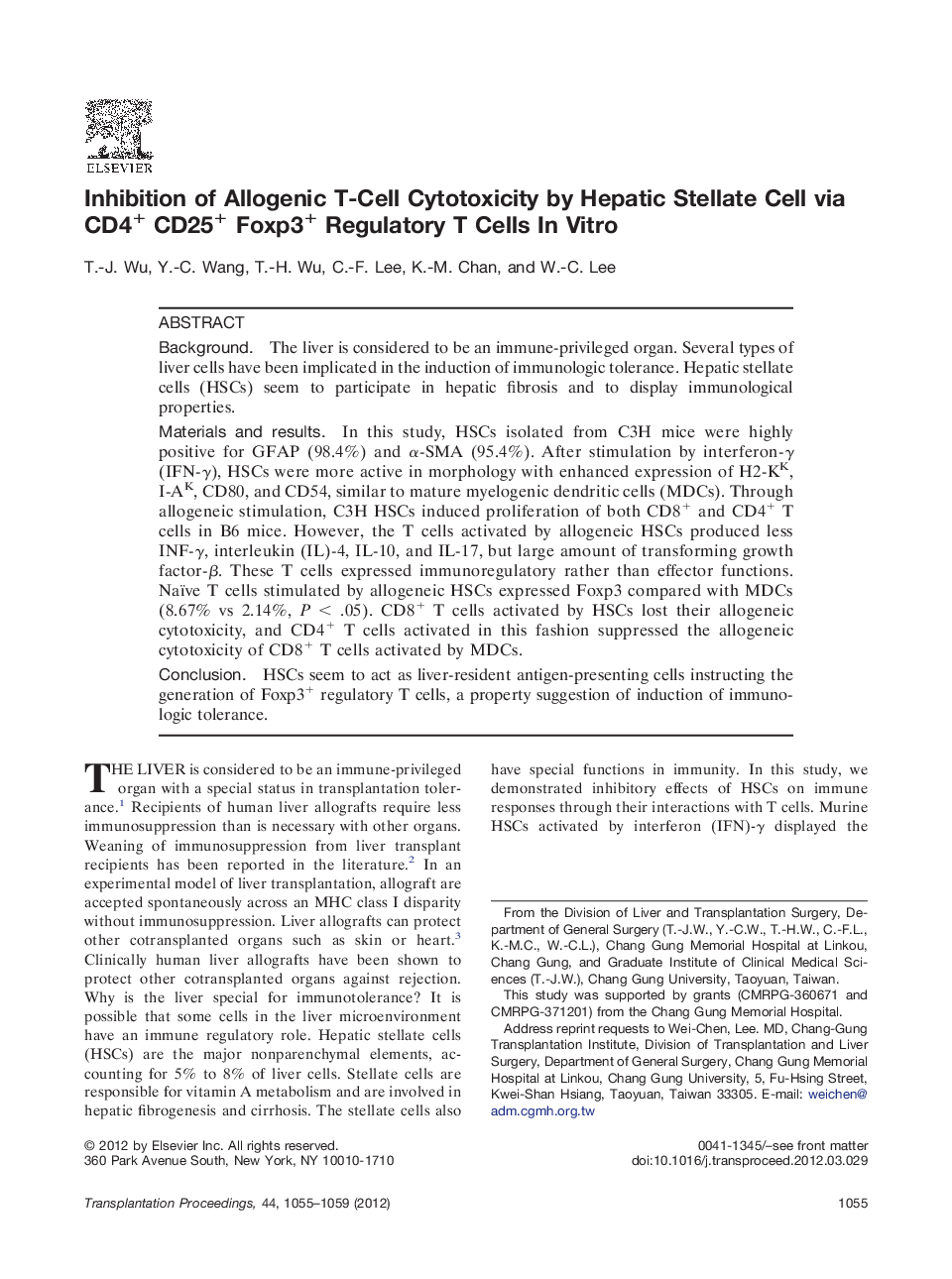| Article ID | Journal | Published Year | Pages | File Type |
|---|---|---|---|---|
| 4256862 | Transplantation Proceedings | 2012 | 5 Pages |
BackgroundThe liver is considered to be an immune-privileged organ. Several types of liver cells have been implicated in the induction of immunologic tolerance. Hepatic stellate cells (HSCs) seem to participate in hepatic fibrosis and to display immunological properties.Materials and resultsIn this study, HSCs isolated from C3H mice were highly positive for GFAP (98.4%) and α-SMA (95.4%). After stimulation by interferon-γ (IFN-γ), HSCs were more active in morphology with enhanced expression of H2-KK, I-AK, CD80, and CD54, similar to mature myelogenic dendritic cells (MDCs). Through allogeneic stimulation, C3H HSCs induced proliferation of both CD8+ and CD4+ T cells in B6 mice. However, the T cells activated by allogeneic HSCs produced less INF-γ, interleukin (IL)-4, IL-10, and IL-17, but large amount of transforming growth factor-β. These T cells expressed immunoregulatory rather than effector functions. Naïve T cells stimulated by allogeneic HSCs expressed Foxp3 compared with MDCs (8.67% vs 2.14%, P < .05). CD8+ T cells activated by HSCs lost their allogeneic cytotoxicity, and CD4+ T cells activated in this fashion suppressed the allogeneic cytotoxicity of CD8+ T cells activated by MDCs.ConclusionHSCs seem to act as liver-resident antigen-presenting cells instructing the generation of Foxp3+ regulatory T cells, a property suggestion of induction of immunologic tolerance.
